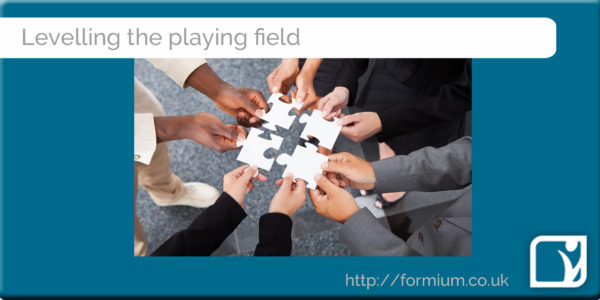My eye was caught some time ago by an article in The Atlantic lauding tech company Slack for its diversity. In a sector that is traditionally white and male they have reached unprecedented levels of female and ethnic staff members. This is good news; all research studies show that more diverse workforces have better performance and innovation, and any steps in the right direction should be applauded. But I was surprised to see that many of their ground-breaking solutions were techniques that anyone in the UK public sector for the last 20 years would have recognised. Yes, Slack had discovered the benefits of competencies, levelling the playing field (e.g. anonymous code review), asking candidates the same questions and providing training for their interviewers.
The article is also interesting because it repositions these known techniques within the new language and thinking on unconscious bias. As a trainer I’ve gone from delivering courses on “Equal Opportunities” to “Diversity”, “Diversity and Inclusion” and now “Unconscious Bias”, reflecting the development of ideas and theories. I remember that the reaction of many participants to courses on “Equal opportunities” was on the lines of ‘I’m not a racist – so everything’s already okay’ or discussion about myths of political correctness such as town councils ‘replacing’ Christmas with Winterval.
The reactions I get nowadays from course participants on Unconscious Bias is a lot more thoughtful. People are really interested that despite their intention to be non-discriminatory, they have complex and varied assumptions that they may not be aware of. The brain’s use of heuristics and short-cuts has received a lot more attention in recent years, popularised by writers such as Daniel Kahneman. The training I deliver nowadays focuses on learning how to respond, not to react – slowing down so that our rational System 2 thinking can kick in and take over from our System 1 emotional responses. It is about tapping into reality, not your own baggage and preconceptions.
So ideas such as asking everyone the same interview questions, or using anonymous assessments can now be seen in a new light. Previously it was about levelling the playing field to avoid active discrimination – now it is about using a level playing field to prevent our unconscious biases from coming into effect.
For more reading and thinking…
Thinking Fast and Slow [Amazon UK affiliate link]
If you want to know more about the science behind unconscious bias, then this really is the best place to start. Daniel Kahneman’s 2012 book is a fascinating introduction into System 1 and System 2 thinking, the mental shortcuts we take, and how we are more influenced by unconscious thinking than we would like to admit.
Gold Standard Recruitment & Selection
For tools and methods to ensure fair recruitment, there is a great article by diversity specialist Fiona McPhail in People and Purpose – the Positive Leadership journal. Fiona takes you through the recruitment process, building in fairness and equality all the way.





